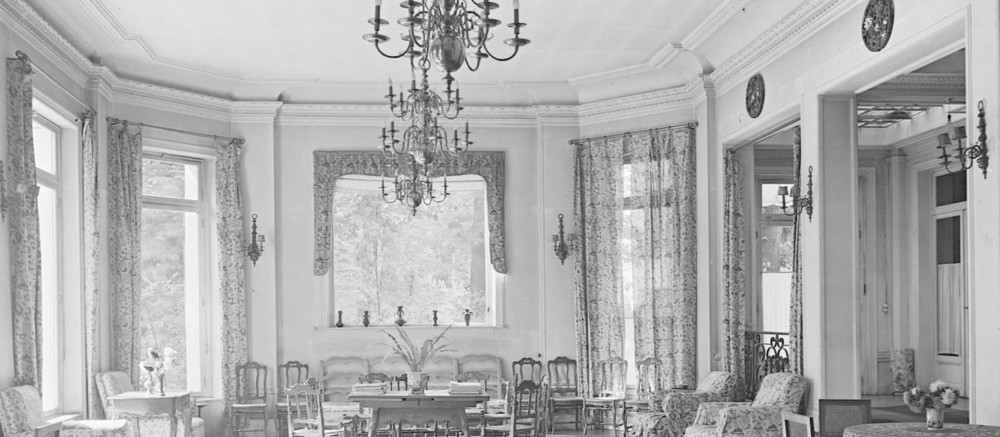The Autour du Monde Society
Including the French grant recipients and various personalities, Albert Kahn first hosted the Autour du Monde Society in 1906 in his beautiful villa in Boulogne.

Inscribed in the constellation of organizations working for peace through legal channels, it participated in the spirit that animated, in France, Paul d’Estournelles de Constant (honorary member of the society as of its creation) or, in the United States, Nicolas Murray Butler and his International Mind.
Its originality, in this context, is linked to its type of privileged initiative: more than a place for activists to socialize, it was a genuine space for conviviality. The “Circle” (as it was meaningfully called by its members) attempted to attract everything influential on the planet, in all spheres of activity.
An invitation to the society was an exercise in seduction and included a lunch, a visit to the gardens, screenings, conversations and intellectual exchanges, but without any formalities. Rituals, but nothing mandatory: thus, the guest’s portrait was often replaced by that of their partner or children since people often came to the Circle with their family. Tagore, who stayed here, felt like he was at home. In 1906, Le Figaro reported that “Everything is fresh and cheerful to the eye.” Chrysanthemum festivals, celebrations of Youth and Springtime were also organized in the gardens.
As “a crossroads to all the routes of the world,” the Circle, in the spirit of traveling, continued to be an often ephemeral, but inspiring stop, giving off – Bergson wrote – “a moral atmosphere, which eminent men from all countries want to breathe, especially those who cherish the dream of an organized and better kind of humanity.”
However, Marguerite Borel (spouse of a member) pointed out one of its flaws: in the 1920s, she deemed that, “Boulogne has taken on an academic tone. Instead of an atmosphere of camaraderie, the Circle has become a “gallery of celebrities.” Some are interesting. Others who require disciples and admirers are intolerable.”
